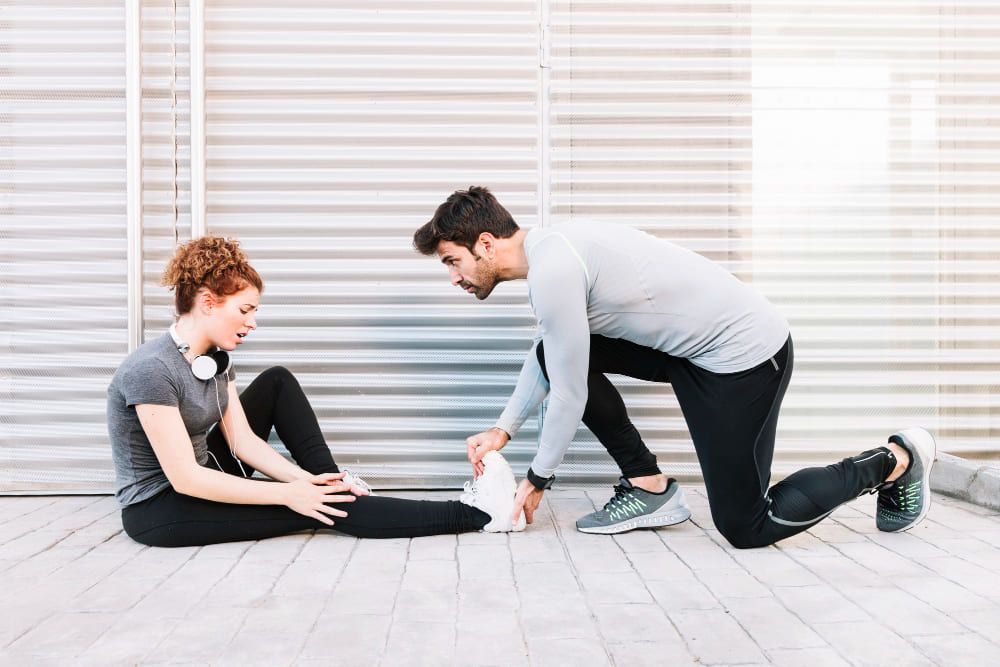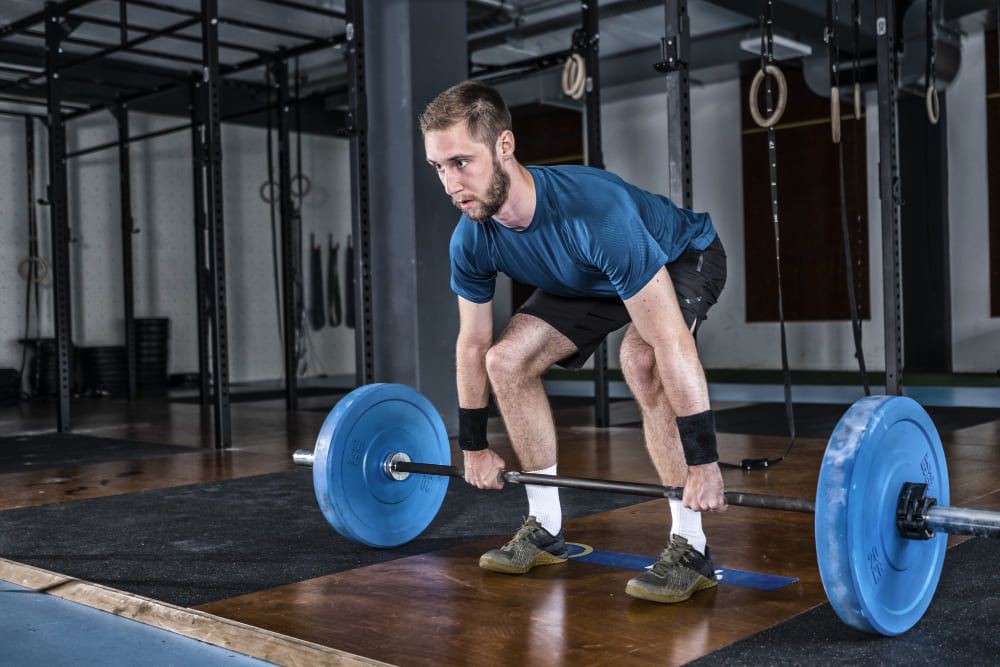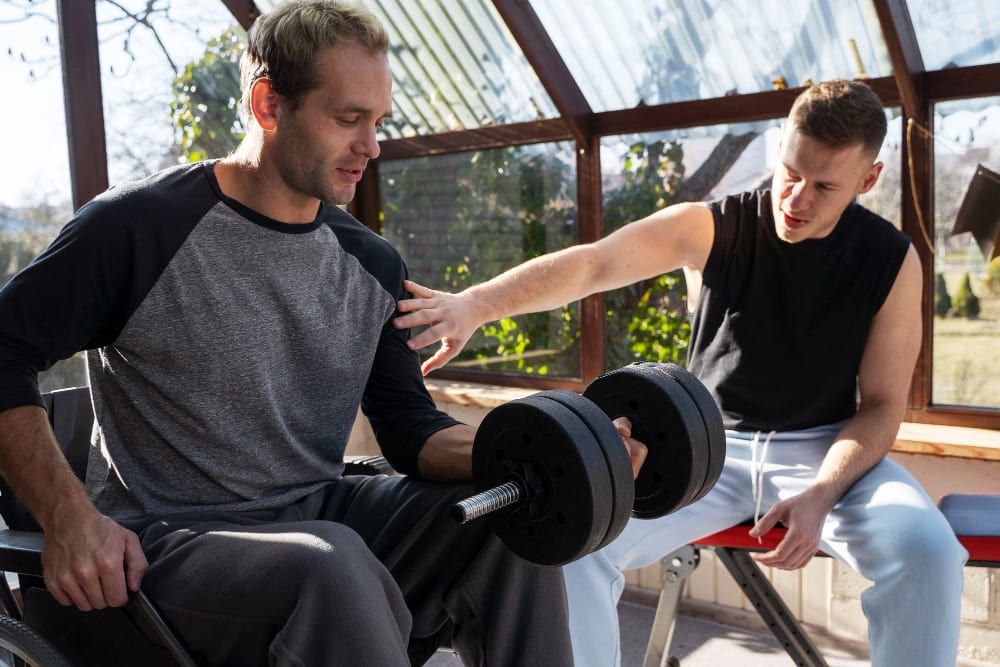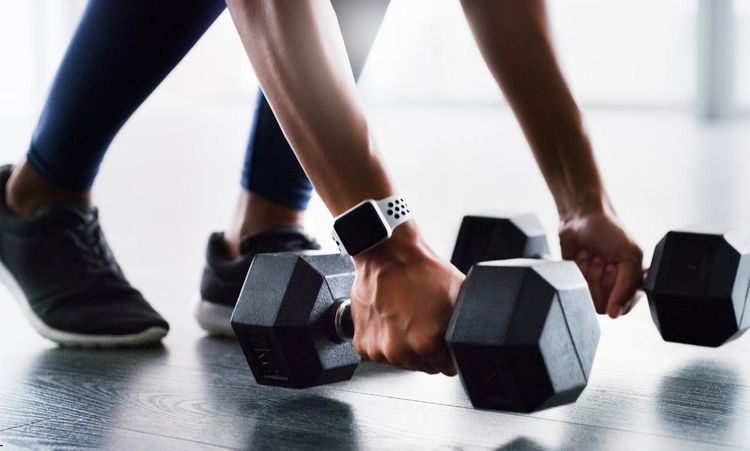When it comes to exercising, there’s no doubt that it’s important for maintaining overall health and well-being. From reducing the risk of chronic diseases to improving mental health, regular exercise has numerous benefits. Like any activity, however, there are common mistakes that people make when it comes to exercising. These mistakes can not only hinder your progress but also increase the risk of injury.
Today I'm going to discuss these most common exercise mistakes and how you can avoid them. When you’re aware of these mistakes, you can make the necessary changes to your routine and get the most out of your workouts.
Here are 10 of the most common exercise mistakes and how to avoid them:
Not Warming Up Properly

Warming up before a workout is crucial as it prepares your body for the physical activity ahead. Yet, many people skip or rush through their warm-up, which can lead to injuries. Warming up helps to increase blood flow, loosen muscle tension, and raise your body temperature. You may also find that your performance during the workout is improved with a proper warm-up.
How to Avoid It:
Take at least 5-10 minutes to warm up before any exercise. This can include light cardio, stretching, or dynamic movements that mimic the exercises you’ll be doing in your workout.
For example, before a leg workout, do some leg swings, lunges, and squats to warm up the muscles in your legs. Remember, a proper warm-up should leave you feeling warm but not fatigued.
Ignoring Proper Form

Performing exercises with incorrect form is a common mistake, especially for beginners. Poor form can lead to injuries and also decrease the effectiveness of the exercise. Many people may also try to lift heavy weights in an attempt to impress others, which can lead to serious injuries.
How to Avoid It:
It’s important to learn the proper form for each exercise you’re doing. If you’re unsure, ask a fitness professional or watch tutorials online. Remember, it’s not about how much you’re lifting, but rather how well you’re performing the exercise.
Not Resting Enough

Rest and recovery are essential components of any effective fitness routine, yet they are often overlooked. Many people feel that working out every day without breaks will speed up their progress. However, overtraining can lead to fatigue, decreased performance, and a higher risk of injury. So when it comes to exercise, rest is just as important as the workout itself.
How to Avoid It:
Make sure to take at least one day off per week from your workouts Listen to your body and take breaks when needed, even if it means taking a couple of days off from exercise. This rest day gives your muscles a chance to repair and grow stronger, which is essential for achieving fitness goals.
Neglecting Proper Nutrition

Exercise alone cannot deliver optimal results without the support of a well-balanced diet. Neglecting proper nutrition is a common mistake that can hinder your performance and slow down progress. Your body needs fuel in the form of healthy foods to perform at its best during exercise.
How to Avoid It:
Make sure to fuel your body with nutritious foods before and after your workouts. This includes a balanced mix of carbohydrates, proteins, and healthy fats. Consult with a registered dietitian or do your research to find the best nutrition plan for your exercise routine. If you're feeling fatigued during workouts, it could be a sign that your body needs more fuel.
N**ot Setting Realistic Goals

Setting unrealistic fitness goals is another common mistake that people make. Many people fall into the trap of expecting quick results and end up getting discouraged when they don’t see them. This can lead to giving up on exercising altogether.
How to Avoid It:
To avoid this mistake, set realistic and achievable goals for yourself. Break larger goals into smaller, more manageable milestones to stay motivated and track your progress. Instead of trying to lose 20 pounds in a month, aim for a more manageable goal like 1-2 pounds a week. If we set realistic goals, we’re more likely to stick with our exercise routine long-term.
Focusing Too Much on Cardio
While cardio is an essential part of a well-rounded exercise routine, focusing too much on it can be a mistake. Many people tend to neglect strength training in favor of cardio because they believe it will help them lose weight faster. However, strength training is crucial for building muscle and increasing metabolism.
How to Avoid It:
Make sure to include both cardiovascular exercises and strength training in your workout routine. Aim for at least two days of strength training per week to see results and improve overall fitness.
Using Incorrect Equipment

Using incorrect equipment is another common mistake, especially when it comes to weightlifting. Improperly using equipment can lead to injuries and also decrease the effectiveness of the exercise.
How to Avoid It:
Before using any equipment, make sure that you know how to use it correctly. If you’re unsure, ask a fitness professional for assistance or watch tutorial videos online. It’s also essential to check the equipment for any damages or malfunctions before using it. Safety should always be a top priority in your exercise routine.
Comparing Your Progress to Others

Comparing your fitness progress to others is a mistake that can negatively impact your motivation and self-esteem. Everyone’s body is unique, and factors such as genetics, fitness level, and personal goals can all influence the rate of progress. Constantly measuring yourself against others can lead to frustration and may even cause you to abandon your fitness routine altogether.
How to Avoid It:
The best way to measure progress is by comparing yourself to your past self. Keep track of your own progress, celebrate small victories, and focus on how far you’ve come rather than how far others have gone. Remember that the journey to fitness is a personal one, and everyone’s path will be different. Stay focused on your own goals and progress at your own pace.
Not Staying Hydrated

Staying hydrated is essential for overall health and is especially important during exercise. If you’re not drinking enough water, it can hinder your performance and even lead to dehydration.
How to Avoid It:
Aim to drink at least eight glasses of water daily, increasing your intake on days when you exercise. Always bring a water bottle to your workout sessions and sip on it regularly throughout the day. If you’re doing intense exercise or sweating excessively, consider drinking a sports drink to replenish electrolytes lost through sweat.
Not Making It Enjoyable

Many people view exercise as a chore, which can lead to a lack of motivation and consistency. If you’re not enjoying your workouts, it’s likely that you won’t stick with them long-term. You should look forward to exercising and finding a routine that you genuinely enjoy.
How to Avoid It:
Try different types of workouts until you find something that you love. This could be anything from dancing and hiking to weightlifting and yoga. When you enjoy what you’re doing, it won’t feel like a burden, and you’ll be more likely to stick with it.
You can also invite friends or join group classes to make your workouts more fun and social. Remember, exercise should be something that you look forward to and not dread.
Must Read: How to Start Exercising for the First Time
Conclusion
Avoiding these common mistakes will not only improve your fitness results but also ensure that your exercise routine is safe and enjoyable. With the right mindsets, proper nutrition, and a well-rounded workout routine that you enjoy, you can achieve your fitness goals and maintain a healthy lifestyle. Consult with a healthcare professional before starting any new exercise routine, and always listen to your body's needs.
Read More: 5 Easy Home Workouts for Beginners




